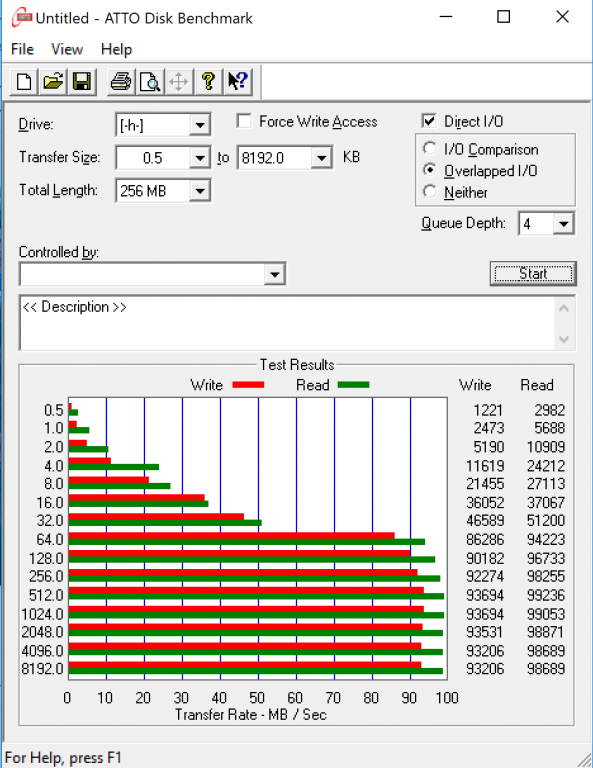ATTO Disk Benchmark is perhaps one of the oldest benchmarks going and is definitely the main staple for manufacturer performance specifications. ATTO uses RAW or compressible data and, for our benchmarks, we use a set length of 256mb and test both the read and write performance of various transfer sizes ranging from 0.5 to 8192kb. Manufacturers prefer this method of testing as it deals with raw (compressible) data rather than random (includes incompressible data) which, although more realistic, results in lower performance results.
 Performance progression is solid as sample sizes increase and 98MB/s read and 93MB/s write data transfer speeds are pretty close to the listed spec of 100MB/s read and 95MB/s write.
Performance progression is solid as sample sizes increase and 98MB/s read and 93MB/s write data transfer speeds are pretty close to the listed spec of 100MB/s read and 95MB/s write.
CRYSTAL DISK BENCHMARK VER. 5.5.0 X64
Crystal Disk Benchmark is used to measure read and write performance through sampling of random data which is, for the most part, incompressible. Performance is virtually identical, regardless of data sample so we have included only that using random data samples.
Once again, we have very strong results in CDM and you might notice that the low 4K random results are low. This is expected and typical of just about every flash card on the market today. The reason is that these cards are intended to record, store and playback media which it does very well. This is represented by the high sequential results on the first line. If this card were fine tuned for very highly compressible and small system files, you might see those results on the bottom line just a bit higher.
ANVIL STORAGE UTILITIES PROFESSIONAL
Anvil’s Storage Utilities (ASU) are the most complete test bed available for the solid state drive today. The benchmark displays test results for, not only throughput but also, IOPS and Disk Access Times. Not only does it have a preset SSD benchmark, but also, it has included such things as endurance testing and threaded I/O read, write and mixed tests, all of which are very simple to understand and use in our benchmark testing.
 The SSD Review The Worlds Dedicated SSD Education and Review Resource |
The SSD Review The Worlds Dedicated SSD Education and Review Resource | 
